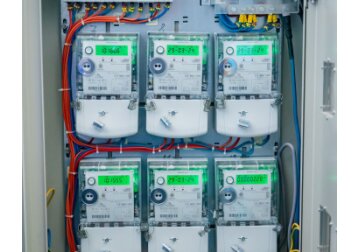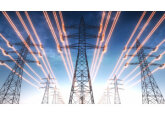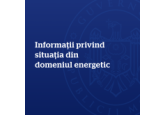
It is not necessary to install smart meters to benefit from differentiated electricity prices by hours of consumption - NAER
The National Agency for Energy Regulation (NAER) reported this, noting that most modern electronic meters are equipped with hourly electricity metering functions. The energy regulator made these clarifications, explaining its January 3 decision to introduce differentiated prices for electricity depending on the hours of consumption. NAER said that the decision came as a result of changes in the contractual portfolios of universal service providers, which provide for differentiated prices depending on the hours of consumption. Electricity purchased by suppliers at night is cheaper, and, accordingly, NAER's decision gave end consumers the opportunity to benefit from the reduction of electricity prices at night. The regulator emphasizes that, in order to benefit from differentiated prices according to consumption hours, it is not necessary to install expensive smart meters with remote reading, as most modern electronic meters are equipped with hourly electricity metering functions. These meters read similarly to conventional meters, except that the reader receives from the meter not only a summary figure of monthly consumption, but also the amount of energy consumed in each of the time intervals set by NAER. Accordingly, the total monthly energy consumption will be divided into 2 parts: energy consumed between 7:00 a.m. and 11:00 p.m. (more expensive energy) and energy consumed between 11:00 p.m. and 7:00 a.m. (cheap energy). NAER points out that electricity metering devices installed at prosumers - consumers with power plants for the generation of electricity from renewable sources, regardless of the grid operator to which the consumers are connected, have the ability to meter electricity on an hourly basis. Moreover, the vast majority of electronic meters installed in non-household consumers’ facilities can also record the energy consumed at hourly intervals. In this context, non-household customers who choose to apply differential pricing are advised to first indicate whether the meter they are currently using has the ability to record energy at hourly intervals. If the equipment is equipped with the described functionality, the system operator's specialists will program the meter to apply differentiated prices at the customer's request. With regard to household customers, pursuant to Article 55, paragraph (5) of the Law on Electricity, if a residential customer requires the installation of a meter enabling hourly recording of electricity consumed, the respective customer shall bear the costs of acquisition, maintenance and replacement of the respective metering equipment. According to Article 55, paragraph (3) of the Law on Electricity, system operators conduct electricity metering using only metrologically verified measuring equipment, the types of which are included in the State Register of Measuring Instruments published in the Official Journal of Moldova (Monitorul Oficial) and posted on the website of the National Institute of Metrology. Before applying for electricity supply at consumption interval prices, each consumer is advised to analyze their current consumption, taking into account the energy consumption that could potentially be shifted to night hours. The benefits will only appear if consumer behavior changes. NAER states that electricity meters with hourly billing can be purchased both from system operators and from other sellers of electrical equipment in Moldova. The meters must be metrologically verified and entered in the State Register of Measuring Instruments. When buying a meter, the seller should be asked to confirm that the meter can register electricity for at least two time intervals, or to carefully study the technical characteristics of the meter before making the purchase. In the same way, it is necessary to clarify whether it is possible to reprogram the meter for time intervals other than those specified by the manufacturer. In any case, the best solution is to consult the system operator in advance about the recommended meter types. According to item 181 of the Regulation on connection to power grids and provision of electricity transmission and distribution services, approved by NAER decision, the system operator is obliged to inform the applicant, potential user of the system, about the parameters and technical characteristics of the metering equipment to be installed, as well as about the types of metering equipment legalized in Moldova. Any change related to the end-user's metering equipment will be carried out only after sending a request to the system operator to which the consumer's object of use is connected, within the terms and conditions established in the Connection Regulation (Chapter II, section 6). In the case of non-household consumers, it will first be determined whether the existing meter has the ability to record consumption at hourly intervals. If so, the unsealing, programming and sealing of the meter will be carried out by the system operator's specialists, and the costs associated with this work will be borne by the end-user. If the meter of a non-household customer does not allow hourly recording, that customer shall bear the costs of purchasing, programming, opening, installing and sealing a new meter. In the case of residential customers, a request must also be made to the system operator to open the old meter. A licensed electrician will install the new meter, after which the operator will seal the newly installed meter. After the meter is installed, the consumer must request a corresponding amendment to the electricity supply contract through a request to his/her electricity supplier. The amendment of the contract will be carried out by the supplier under the conditions established by the Regulation on Electricity Supply, approved by NAER decision of May 31, 2019. According to the clause 61 of the said regulation, the supplier is prohibited from demanding any payment for the conclusion or amendment of the electricity supply contract. // 06.01.2025 - InfoMarket







